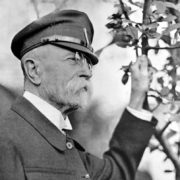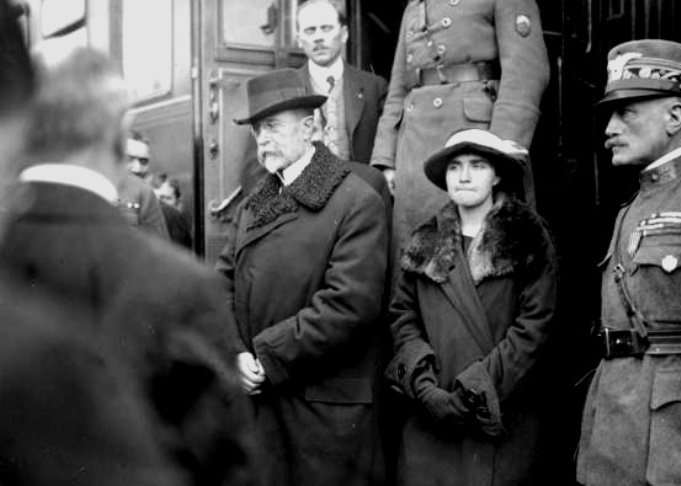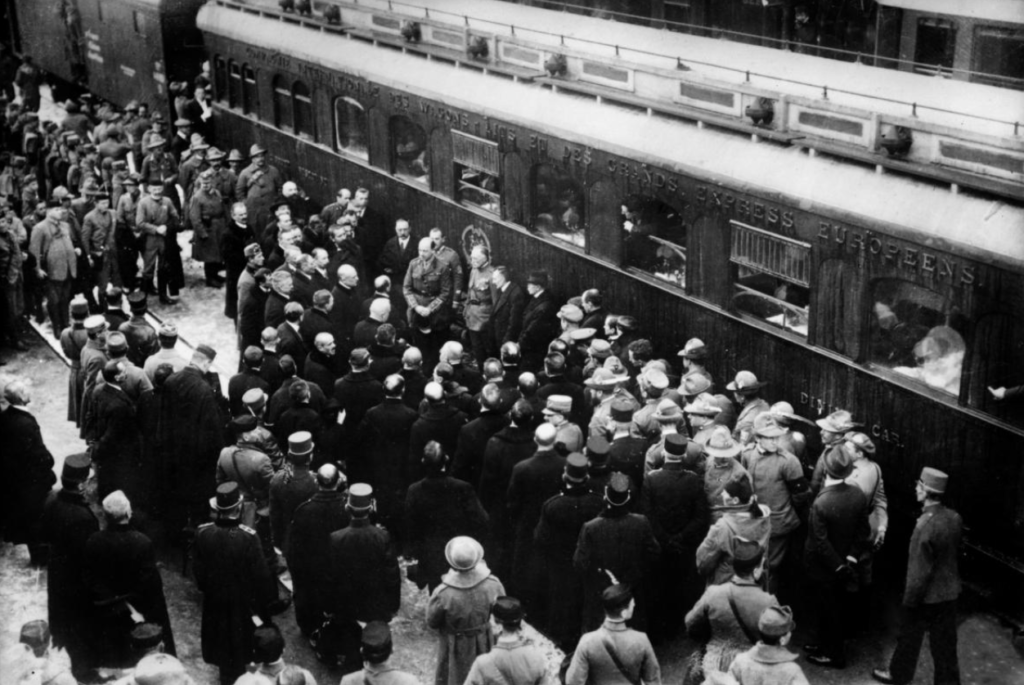Heading the government-in-exile, he gathered Western support for Czechoslovakia. His colleague Eduard Beneš also greatly contributed to the cause as did Slovak scholar and astronomer Milan Rastislav Štefánik. During a trip to the USA, Masaryk carried out negotiations with President Woodrow Wilson and Secretary of State Robert Lansing and convinced them of the need for Czechoslovak independence.
On June 3, 1918, Czechoslovakia was recognized as an Allied power, and its frontiers were demarcated according to Masaryk’s outline. As Masaryk had promised, the new multinational state respected the minority rights of its large German and Hungarian ethnic groups.
The Lansing Declaration of May 1918 expressed the sympathy of the U.S. government with the Czechoslovak freedom movement, and Czechoslovakia’s liberation became one of Wilson’s Fourteen Points for the post-World War I peace settlement.
Wilson supported the emergence of an independent Czechoslovakia, the “founding document” of which was the so-called declaration of Czechoslovak independence which came about on 16th of October 1918 in Washington and which was announced in Paris on 18th of October 1918.
Charles I accepted Wilson’s declaration on 28th of October 1918 with this day being the day of the founding of Czechoslovakia. The cease-fire was signed in Compiègne on 11th of November 1918 bringing an end to World War I.
That same day, Emperor Charles I signed an abdication document and immediately left the Schönbrunn Château in Vienna, definitively bringing an end to Austria-Hungary.
Tomáš Garrigue Masaryk was elected President of independent Czechoslovakia on 14th of November 1918.













